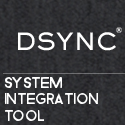Author: Cristian Stan If you’ve ever owned a Windows computer chances are your computer was at one point infected with a virus. The solution to this problem is not purchasing antivirus software.
The answer to this problem is abandoning Windows as your main operating system, however to some this might seem an impossible thing to do. Apple computers are rather expensive and while they can run Windows as a secondary operating system most people would prefer to be able to run Windows applications on their primary operating system without a noticeable slowdown.
This is where Linuxcomes in as an all around great performer. Linux has very few viruses written for it and due to the many different versions and “flavors” of Linux it is hard to write a virus for this platform. Linux is still not perfect and does have security features implemented to protect you from the few threats that are present or any threats that may arise in the future.
While Windows Vista came pre-configured with a very annoying and redundant security system, Linux allows the user to carry out everyday tasks without interruption. Your biggest worries with Linux are cross-platform viruses which can run on any computer through Java or another runtime environment that is installed.
Even if you still insist on an anti virus program, either because you want to use Linux as a server platform or simply want to make sure your data is safe, there are several programs you can choose from. These programs range from the open source and ever improving ClarnAV to the closed source software of Trend Micro.
No matter which of these programs you choose you will most likely only use them if you happen to download a windows virus which cannot harm your PC anyway. When running a server these programs are a very valuable asset that st op your server from becoming a breading ground for viruses. A lot of people happen to assume that Linux is only for servers or Beowulf clusters. It’s true that Linux is a great operating system for those two uses however it’s also true that certain versions of Linux are just as user friendly as Windows. You can customize every aspect of the operating system to achieve the optimal blend of performance, looks and user friendliness. Linux also features built in support for multiple desktops and a whole array of effects that range from a “desktop cube” to a realistic “rain” effect.
You can increase your productivity tenfold by increasing your desktop space without spending money for extra monitors and expensive graphics cards. With Linux just tapping three keys quickly and easily moves to the next or previous workspace. Not everyone uses Linux as a server though and those who don’t will still find it as a feature rich operating system with great open source alternatives to commercial applications Open Office is a free open source replacement for Microsoft Office. It can open all the files Microsoft programs create and save files in a variety of formats. There are also open source alternatives to Adobe Reader and even Java JRE and JDK. The open source applications often end up running much faster than commercial applications or at the very least on par in terms of speed with commercial applications.
Article Source: http://www.articlesbase.com/software-articles/why-linux-isnt-only-for-geeks-5387056.html About the Author PC Geeks.org blog – Read more about podcasts metadata and browser plugins.




This creates more trouble than fun.
All in all, I fully agree with you about the main thrust of this article – that Linux environments are extremely hostile for viruses to live, and that’s a strong reason to consider adopting a suitable flavor.
I don’t want to be a killjoy, but the average Windows user, even those accustomed to installing and configuring their own software, will not know what to do with a Linux system. Microsoft Office compatibility in Open/Libre Office is not perfect, either, especially with OOXML files, which are becoming all too common these days.
That said, Linux can be a great desktop OS, if configured properly. Unfortunately, the go-to choice–Ubuntu–is going to present a jarring experience to Windows users because of Unity. And it will be the first place those users go to find an easy-to-use Windows alternative. They likely will think that all Linux systems look and act like that one. If they don’t like it, they will leave and never return.
I personally don’t believe Linux is appropriate for most Windows users. Unix is designed from the ground up for experts. No amount of glitz will change that. Windows is for the masses. Mac OS X is for the elite. Why do people insist that the Holy Grail of Linux desktop development is to make a system that is designed for experts appeal to the masses? There’s nothing wrong with having a desktop OS designed for experts. Why not embrace that idea?
If you introduced Ubuntu to someone with no computer experience they could do quite well.
Nothing difficult or unusual there that can’t be learned easier than in Windows.
LibreOffice does quite well with what most people need it for. Compatibility is great in my long experience. Who expects perfection on complicated proprietary MS Office formatting?
Happens less than 10% of the time for what most people do.
More than once LibreOffice has bailed me out when using pptx (when Office 2003 on that old XP machine could not open the doc).
Linux is great for the average user who wants a low maintenance desktop, and others learning web dev.
Windows is quite a complicated system to keep running smoothly and safely over time – so it’s not for everybody.